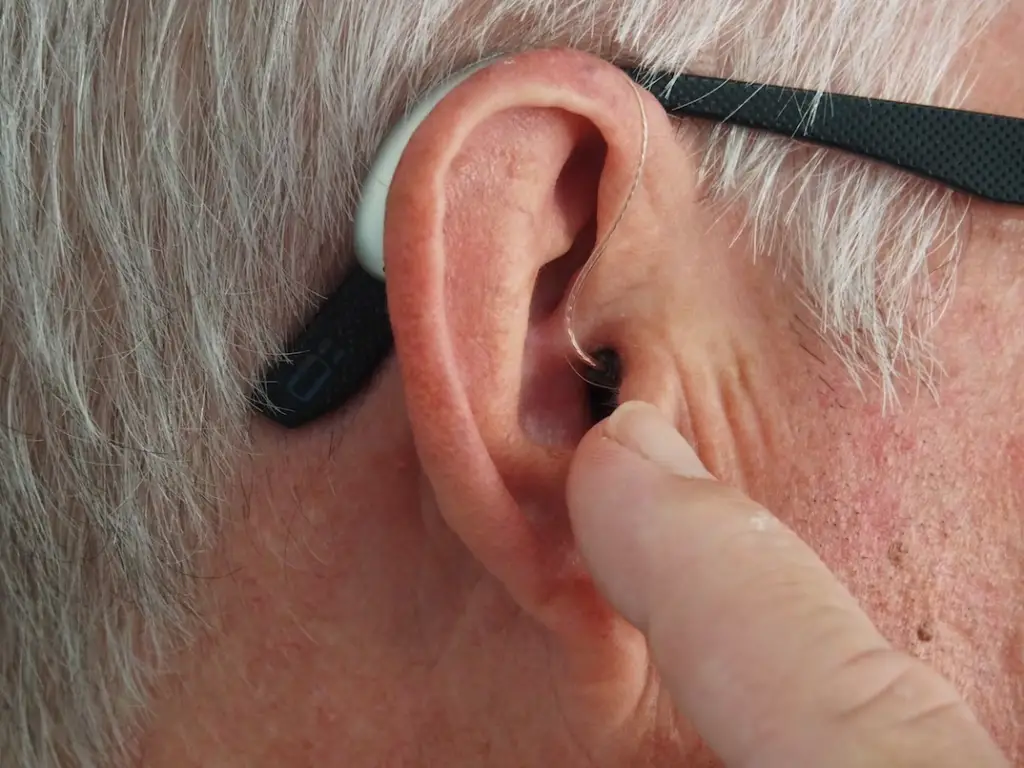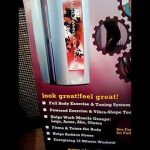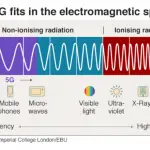Last Updated on 12 months by Francis
Do Hearing Aids Really Work?

Hearing loss is a challenging experience that makes it difficult for people to communicate and live normal lives. Fortunately, there are several ways people can improve their hearing. The most notable is the use of hearing aids. Hearing aids are small electronic devices that people wear in or around their ears to amplify sound so they can hear better. Before being subject to using hearing aids, a medical practitioner has to perform hearing tests on you to determine if you need them.
Not every form of hearing loss requires hearing aids. Some could be temporary or caused by earwax buildup that can be treated. Healthcare providers like HearCanada, specializing in ear care, should perform extensive checks on patients with trouble hearing to proffer the correct solution.
How Hearing Aids Work
Hearing aids amplify sound waves so they become louder and can be heard by a wearer with hearing loss. This device has three components; a microphone, amplifier, and speaker. The microphone listens for sounds in the environment and picks up any it detects. The amplifier raises the volume of the sound while the speaker feeds the amplified sound to the listener.
There are different types of hearing aids. Several types use infrared to transmit audio signals, and some use Bluetooth. Some models are placed behind the ear (BTE), some inside the ear (ITE), and others are placed in the ear canal (ITC).
The most common is the BTE models, and they are built with a tube connecting a device placed behind the ear to a customized earpiece that sits in the ear canal. ITE models are made to be placed in the outer ear and are custom designed to fit the wearer’s ear shape. The ITC hearing aids are built small enough to fit the wearer’s ear canal.
Hearing aids may not fully restore the wearer’s hearing to its default state, but they will improve their communication and quality of life. Medical practitioners prescribe hearing aids for patients according to the type and severity of their hearing loss. They also consider the patient’s lifestyle and preferences.
These devices vary in cost according to the model and the technology used to create them. Advanced hearing aids are usually more expensive, but lower-cost ones offer significant benefits. To keep hearing aids working optimally, they should be regularly maintained and cleaned. Patients should also schedule regular checkups with healthcare providers to observe improvement in their hearing and adjust the settings of their hearing aids if necessary.
When are Hearing Aids Necessary?
Some hearing losses are temporary. When people visit nightclubs, concert halls, or places with loud noises for several hours at a time, they can lose a bit of their auditory perception. Sounds become muffled, they might not hear whispers, or their ears might have tinnitus. However, these symptoms will subside in a few days, and their hearing will be stored.
Permanent hearing loss is caused by prolonged exposure to loud sounds. These loud sounds overwork the hair cells in the ear until they die. Hearing loss is gradual and often irreversible if the auditory neural system is damaged. The longer someone is exposed to loud sounds, the more they lose their hearing.
Hearing loss is prevalent among people that work around heavy machinery or listen to loud music with earphones.
If the above symptoms persist for a long time, the affected person might be a candidate for hearing aids. They should seek medical attention and avoid self-diagnosis. However, these are some symptoms commonly experienced by people that need hearing aids:
- They often ask people to repeat their sentences.
- They have difficulty hearing in group settings
- They feel people around them always speak in low tones.
- They listen to the TV, radio, and other sound devices at unusually high volumes.
- They cannot hear people clearly over the phone.
Hearing Aid Evaluation
When hearing loss patients visit an ear clinic like HearCanada, they undergo a hearing test with an audiologist. Audiologists evaluate the ear, diagnose hearing loss and recommend treatment options. They sometimes work with other healthcare practitioners to develop extensive treatment plans for patients if necessary.
During the test, the practitioner will determine if the patient needs hearing aids or is better suited to other forms of treatment. If hearing aids are recommended, the audiologist will determine the correct type for them and perform a custom fitting.
People can buy hearing aids at ear clinics. In some countries, they are sold at pharmacies, and people can buy them without tests, professional fittings, or prescriptions. Over-the-counter hearing aids are beneficial to people experiencing mild or moderate hearing loss. They amplify sound effectively but are not customizable to fit the wearer’s needs.
Prescription hearing aids are fully customizable, more effective, and a better fit for the wearer. They benefit people with mild, moderate, and severe hearing loss. One would need a hearing test and evaluation before they are issued. Prescription aids usually require yearly visits to the audiologist for adjustment and recalibration. This is essential to keep the device working as intended.
Benefits of Using Hearing Aids
Living with hearing loss can be an isolating and frustrating experience for most people. The use of hearing aids is a welcome proposition for many and here are what they will gain from using it:
- Better Communication
Hearing is essential for communication, as people use it to hold conversations or consume audio and video content. Hearing aids can bring back people’s auditory perception so they can communicate effectively with people around them. This ends their reliance on sign language, transcripts, subtitles, and texts to understand the world around them.
- Improved Quality of Life
Hearing aids can help people live a better life because feelings of depression and isolation usually accompany hearing loss. They will be able to engage in social activities, hang out with friends, attend concerts, listen to music and connect with family without much trouble. This will improve their mental state and make them happy.
- Reduced Ear Strain
People with hearing loss might strain their ears further if they struggle to listen to the sounds around them. Hearing aids reduce that ear strain by amplifying the surrounding sound so the wearer can hear with minimal effort.
- Avoidance of premature cognitive decline
Hearing loss can make cognitive decline occur faster than usual because people diagnosed with this condition usually isolate themselves. Social isolation results in fewer conversations and interactions with people, which contributes to dementia. Hearing aids enhance people’s ability to hear and understand others so they can engage in regular conversations. This helps the brain stay active, preventing premature cognitive decline.
- Alertness
Auditory perception is essential to detecting danger in one’s immediate environment. With hearing aids, one can hear car horns, alarms, sirens, and other sounds, prompting them to be cautious or to take immediate action to protect themselves. Hearing aids also allow them to function independently in otherwise tricky scenarios. For example, they can drive cars without accidents because they will hear the traffic around them.
- Better Health Conditions
Mental health conditions like anxiety and depression are relatively common among people with hearing loss because they tend to isolate themselves from others. Within months of using hearing aids, these symptoms wear off as they communicate more with friends and family. This leads to better overall health conditions and improvement in their well-being.
- Improved job performance
Hearing aids can impact job performance by making communication easier in the workplace. It also reduces the chances of workplace accidents occurring, thus keeping the wearer and their work colleagues safe.
Tips to Maintain Hearing Aids
It is essential that people take care of their hearing aids. Audiologists give maintenance recommendations when issuing these devices, but here are six tips to consider:
- Protect the device from liquids, extreme temperatures, animals, and children
- Clean the device as directed by a certified medical practitioner
- Replace batteries as soon as they run out
- Put off the hearing aids when not in use
- Schedule checkups with an audiologist at least once every year
- Do not use face or hair cosmetic products while wearing the device
Limitations of Hearing Aids
People with hearing loss can benefit massively from using hearing aids. However, there are some limitations to this technology. It is crucial for them to be aware of these limitations and make informed decisions on their ear care, like determining whether using a hearing aid is the best option for them.
Here are seven of these limitations:
- Acquisition cost
It costs between several hundred and thousands of dollars to acquire each ear of a pair of hearing aids. The acquisition cost can be a barrier for some people in need, especially those from low-income communities. It can also hinder people without insurance coverage for hearing aids or those with a fixed income.
- Constant maintenance
Hearing aids need to be constantly maintained to retain their effectiveness, which includes regular cleaning and adjustments. Wearers also have to replace the battery several times a week. And if the hearing aid stops working as intended, it will need repairs or replacement. The accumulated maintenance cost over time might be too expensive for many people, making them consider other treatment options.
- Wearing discomfort
Wearing hearing aids for long periods can be uncomfortable, especially if they do not perfectly fit the wearer’s ear. Some people might experience irritation or eczema in their ear canal and hear static or whistling noises from the device. It also takes time to adjust the device if it shifts out of position, and some people will never be able to wear them comfortably.
- Social stigma
While hearing loss affects millions worldwide, people wearing hearing aids often feel stigmatized because most people around them do not. They might feel self-conscious and uneasy around others because of the device, making them reluctant to interact with people. It is worth noting that using hearing aids leads to a higher quality of life and is nothing to be embarrassed about.
- Technology dependence
Hearing aids are electronic devices with components that can be affected by temperature, moisture, electromagnetic interference and other forces of nature. If any of the device’s critical components malfunction, it can leave the wearer stranded and unable to communicate effectively since they depend on it. They need a backup battery or an extra pair of hearing aids in case of an emergency. This will add to the cost of purchasing and maintaining hearing aids.
- Limited effectiveness
The device helps people improve their hearing but is not a permanent cure for hearing loss. Some severe forms of hearing loss might not be improved by hearing aids, so wearers will not enjoy a satisfactory level of auditory perception. They have to visit clinics like HearCanada to get other treatments suitable for them.
- Situational incompatibility
Sometimes hearing aids do not work as intended and must be adjusted to fit specific situations. Some hearing aids have settings suited for certain environments and scenarios. For example, music concerts and other noisy environments would have different settings than when using a hearing aid in quiet places like libraries. Unfortunately, the device might sometimes not pick up sounds clearly. People should prepare for these occurrences and learn other communication strategies to cope when their device fails.
Do Hearing Aids Last Long?
Hearing aids last up to six years per user. Audiologists can calibrate it once every year to match the wearer’s auditory perception. This saves them from buying a new device often. However, irregular maintenance or careless handling can make the device malfunction prematurely. Following the maintenance tips above will preserve the device until it dies naturally. A new pair of hearing aids can be costly, so it is best to protect them from conditions that will cause their early demise.
Endnote
If you have trouble hearing sounds, go for a checkup with an audiologist. They will evaluate your hearing loss to determine if you need hearing aids or some other procedure. These medical practitioners can be found at ear care clinics like HearCanada. They will ensure patients are prescribed the correct hearing aid needed to improve their hearing.







